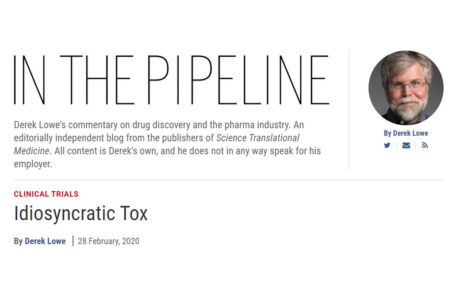
Idiosyncratic Tox
By Derek Lowe
Idiosyncratic toxicities are here, being described as a product of the gaps in our understanding of the human body and the processes that take place within it. Such toxicities, however, are one of the two major causes of failure in clinical trials. Derek Lowe uses the example of torsade de pointes to demonstrate that until the discovery of the hERG ion channel, such clinical manifestations would have been the failure of several drugs in trial without any reasoning for the presence of this toxicity. As a result of the discovery of hERG, pre-clinical screening of the channel is standard. Could this be the case for all idiosyncratic toxicities?
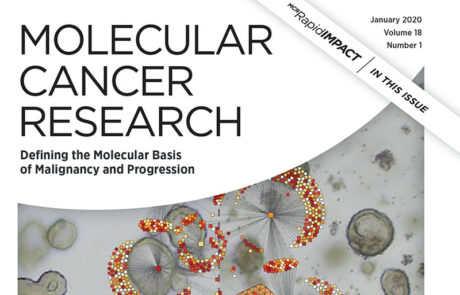
Antibody–Drug Conjugates: A Comprehensive Review
By Puregmaa Kongorzul et al
In the field of cancer research, there is regular new data released indicating a new mutation or mechanism of action. There is hence a great need for regular developments in treatment options. Drug anti-body conjugates are among the fastest growing treatment options as several have now achieved safety approval from the FDA. Although careful design and extensive knowledge of the mechanistic pathway is required to achieve successful treatment and efficiency but also to improve efficacy and safety profile.
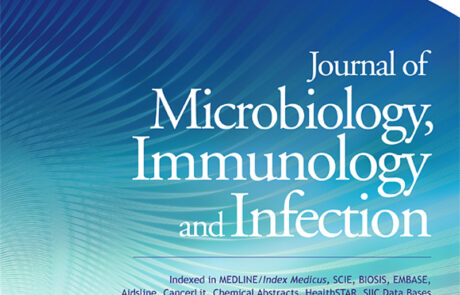
Treatment options for COVID-19: The reality and challenges
By Shio-Shin Jean et al
The current global pandemic incurred through rapid transmission of the SARS-CoV-2 virus, is slowly beginning to ease as the rate of infection slows across the world. Control of a possible second peak is reliant on the development of a vaccine as well as treatment options. As several treatments are compared here by Shio-Shin et al to investigate effectiveness against COVID-19. Particular interest is being directed towards RNA-dependent RNA polymerase inhibitors such as the antiviral, Remdesivir and protease inhibitors such as Lopinavir. Click below to download the open access paper PDF.
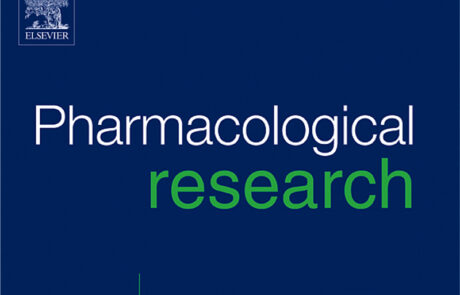
Drugs and Hepatic Transporters: A Review
By Alexander Jetter et al
Xenobiotic drugs are metabolically degraded and eliminated through the hepatic system. Uptake, degrasdation and elimination of drugs is mediated through a series of transport proteins. Transporters are regularly targeted in drug interactions as well as endogenous hormones and chemicals. Hence, several diseases occur due to alterations in function of these endogenous compounds by causing damage to the hepatocytes. Understanding the mechanisms of these reactions can help to reduce harmful drug interactions.
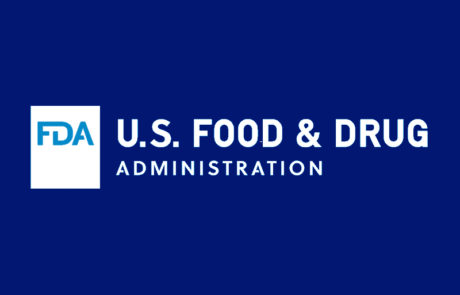
Safety Testing of Drug Metabolites
By The FDA
Updated guidance for industry released by the FDA evaluates the need to identify and characterise drug metabolites in order to assess the safety and toxicity in a non-clinical setting. The guidance applies specifically to small molecule nonbiologic drugs, where animal safety assessments are not typically compared in a cross-species safety assessment. Hence the understanding of the toxicity of the drug in humans is relatively unknown as the drug may become chemically reactive in phase 1 of metabolism. Click below to download a PDF of the guidance document.

Q3C(R8) Recommendations for the Permitted Daily Exposures for Three Solvents—2-Methyltetrahydrofuran, Cyclopentyl Methyl Ether, and Tert-Butyl Alcohol—According to the Maintenance Procedures for the Guidance Q3C Impurities: Residual Solvents
By The FDA
The FDA provides new guidance and recommendations on the use of three different solvents which we may be exposed to daily. An accumulation data gathered allows for a detailed examination of genotoxicity, carcinogenicity, reprotoxicity and repeated dose toxicity from the solvents to hence assess the safety and risk associated with daily exposure.
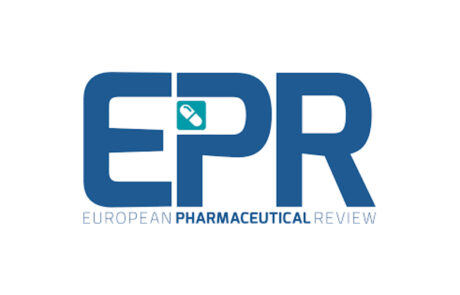
Global COVID-19 hydroxychloroquine trial paused over safety concerns
By Hannah Balfour
The World Health organisation have paused trails of hydroxychloroquine as a treatment for the recent COVID-19 pandemic, due to data from one trial indicating that it in fact increases risk of death. The FDA also indicated risks of heart problems and poisoning.
